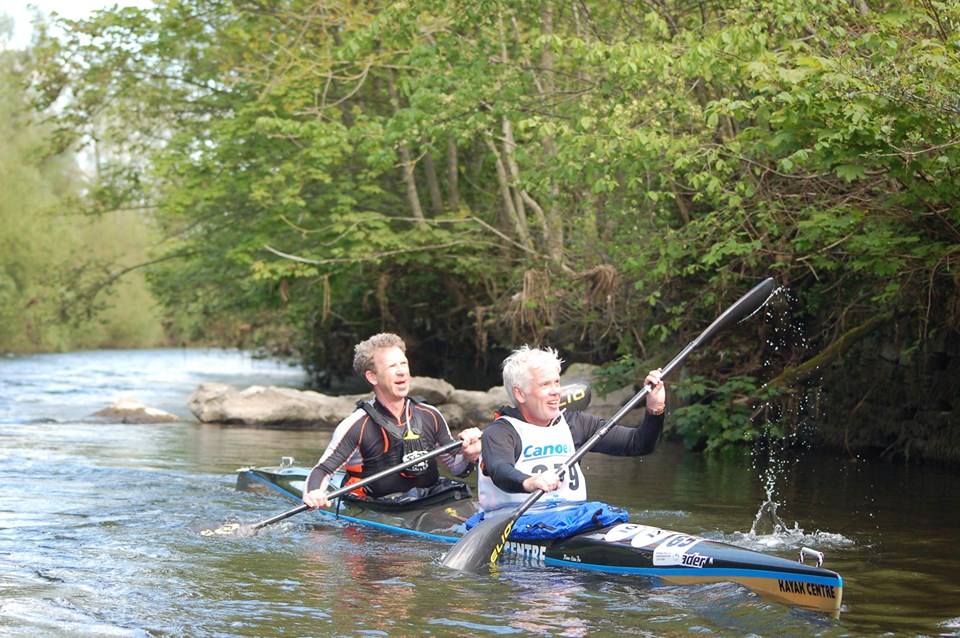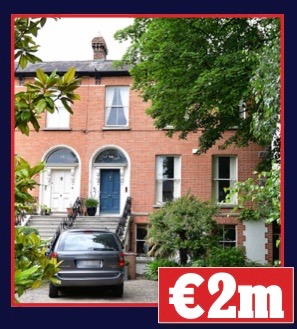By Michael O’Farrell
Investigations Editor
A CONTROVERSIAL Nama developer who made headlines this week for allegedly ‘refusing’ to move from a €2m trophy home to a smaller €900k house wants the State’s bad bank to sell the property to his wife.
John Morrissey, who owes Nama a residual debt of €25m, told the Irish Mail on Sunday that he had never refused to move from the listed period home he shares with his wife and four daughters in Rathmines, Dublin 6.
Nama this week told the High Court that it had questioned how ‘optically’ it would look to the taxpayer if Nama was to allow Mr Morrissey and his family to remain in their €2m home when they owned another less valuable home nearby.
The cheaper home referred to is in Churchtown – a 2,500sq.ft five-bedroom property, which was later sold by Nama for €930k – just a five-minute drive from their Palmerston Road address.
This week, Nama won the right to repayment of an original debt of €32m – reduced to €25m after investment properties were sold off.
Mr Morrissey got loans of some €27m from Irish Nationwide Building Society between 2004 and 2006 to buy seven investment properties. The loans were secured by mortgages over the properties.
There were problems with repayments as early as 2006 and the loans were in serious default when acquired in 2010 by Nama – which called in the loans in 2014.
A loan of €3.75m borrowed in 2005 to buy the Palmerston Road property is also in default – but Nama has yet to enforce against that loan.
In their case, the couple argued Nama was not entitled to call in the loans. They sought a declaration that Nama does not have valid security over the family home.
Nama argued that it had attempted to work consensually with Mr Morrissey but experienced a difficult relationship with him. It said its decision to enforce in 2014 arose when Mr Morrissey was receiving some €200,000 annual rent from the investment properties – but instead of giving it to Nama had retained most of it for his own purposes, including to fund litigation against Irish Bank Resolution Corporation.
Mr Morrissey told the MoS that Nama had used the High Court to create ‘spin’ for ‘titillation reasons’ when it told the court he had refused a suggestion he move to a cheaper home nearby.
‘That headline suggests that we’re basically sitting here and going “f*** off” to Nama,’ Mr Morrissey said. ‘Whereas the actual position is we’re saying, “Can my wife buy it out?” And Nama is basically saying “No”. And we’ve said, “Well, that’s unconstitutional and “Well, that’s unconstitutional and we’ve taken the legal case years ago, and we’re fighting it through the correct channels, and that process is still underway.”‘
Mr Morrissey said his wife – who is not in Nama – had offered to pay the difference in value between the two homes, although, in court, Nama described the offer as a ‘package offer’, which valued the family home well below what Nama believed it to be worth.
‘We obviously offered the difference,’ Mr Morrissey said. ‘But Nama’s position is, “No – for optical reasons here – we want to be seen to get a victory… so we want to actually move you out. It’s not a question of economics.”‘
Mr Morrissey added: ‘My wife remains willing to pay the difference between the value of the family home [following a professional valuation process] and the other property offered, adjusted to 2019 values.

‘It is an open offer, made a number of years ago, that was not time-limited. That Nama has not accepted the offer to date clearly demonstrates that its motives are not driven by a desire to maximise proceeds for the taxpayer.’
Mr Morrissey said that his wife Cearuil (née Nolan) – a former clinical pharmacist involved in medical trials – is not in Nama and was being unfairly denied her constitutional right to buy her family home at market value.
‘The issue is basically Nama looking for a public victory where they can say, “We’ve got this guy out of his house…” and we’re saying, “You can’t do that because you’re denying the right of a wife to buy her family home out at market value, which is clearly unconstitutional” and that’s basically where the two sides have been at loggerheads for the last six years.’
A further complication is that Nama has not yet served enforcement proceedings on the Morrisseys relating to a €3.5m loan secured on the family home.
Mrs Morrissey disputes signing the family home protection documents in 2005 when giving the house as security for that loan. But this week the High Court found that she did sign them and received independent legal advice when doing so.
Nevertheless, Mr Morrissey believes that even if Nama was to seize and sell the family home, his wife should be allowed to buy it. Nama has argued that it is forbidden to sell assets to related parties but the Morrisseys are prepared to challenge this all the way to the Supreme court.
Mr Morrissey also accused Nama of ‘stirring up’ a campaign of ‘provocation’ against him because of a case he took in which Anglo Irish Bank was found to have overcharged him and thousands of other borrowers during the boom.
‘The real motivation here for Nama trying to get at me is because of the potential knock-on effects of an interest overcharge on Nama and Nama not wanting to deal with that,’ he said.
A Nama spokesman declined to comment this week.
Developer has one major tool in battle with Nama – his relentless endurance
JOHN Morrissey is a determined force, capable of extraordinary feats of endurance. Nama has learned that much by now.
In 2012 – after 21 hours and 28 minutes of non-stop paddling down British rivers and canals – he finished 11th in the Devizes-to-Westminster canoe race.
Together with his brothers Tim, Jim and Connor, John is a regular participant in the 125-mile event – one of the toughest in the world.

This aptitude for endurance has served John well in his stand-off with Nama – a battle of sheer will that has now been running for the best part of a decade without coming near a conclusion.
The Morrisseys are tough achievers – Jim is a champion canoeist and Connor is a renowned TV producer, who once made an acclaimed documentary about Ireland’s downturn entitled Things That Went Boom In The Bust.
The title could be a movie about what happened to John, who went into property in 2007 – as the bubble was getting ready to burst.
A one-time actuary with aircraft leasing firm GPA, Mr Morrissey left in 1994 to incorporate the International Aviation Management Group (IAMG) based in the Cayman Islands.
After the sale of IAMG – from which he made millions – he left to become CFO in gaming technology firm Havok in 2001.
When the firm was bought for €78m by Intel in 2007, he made further millions – and with spectacularly bad timing ploughed it into his high-end property investment vehicle, Capital D. The participation of investors such as Dermot Desmond, former AIB chair Lochlann Quinn and VHI chief Vincent Sheridan did nothing to quench the fuse as Ireland’s property bomb detonated.
But unlike other more highprofile Nama developers, precious little is known publicly about John Morrissey.
He has – until now – largely kept his powder dry in terms of press comment, preferring instead to do his talking in court, where he represents himself.
This has led to engaging legal arguments, such as one that he should not have to repay money borrowed from Anglo Irish Bank because it was lent to him at a time when the bank was effectively insolvent.
Whatever about public sympathy for such an argument, there will be some concern at the lack of any enforcement action taken against Mr Morrissey’s private homes. Very few observers enjoy the benefits of living in listed period properties worth upwards of €2m.
Despite debts to the taxpayer via Nama – €25m at present – Mr Morrissey does have a history of benevolent donations. He has supported causes such as the Hugh Lane Gallery, the National Foundation for Tveaching Entrepreneurship (NFTE) and the Dollymount sea scout water sport centre on Bull Island.
Though his property businesses have gone by the wayside, he retains a directorship in an experimental wave energy firm – Cyan Technologies Ltd – with brother Tim.
This firm once received State support in the form of €150,000 in grant funding from SEAI’s Ocean Energy Development Unit (OEDU), as well as EU MaRINET research funding. The firm is carrying a loss of approximately €200,000 at present.
According to CRO records, Mr Morrissey’s 45% stake in the firm was transferred to an entity called the Morrissey Family Trust in 2011.
This trust also owns IGBIS Ltd – a firm with just under €60k in assets on its books which lists Mr Morrissey’s wife, Cearuil as a fellow director.
Mr Morrissey also remains a director of a dormant Galway farm firm with his brother Jim.



